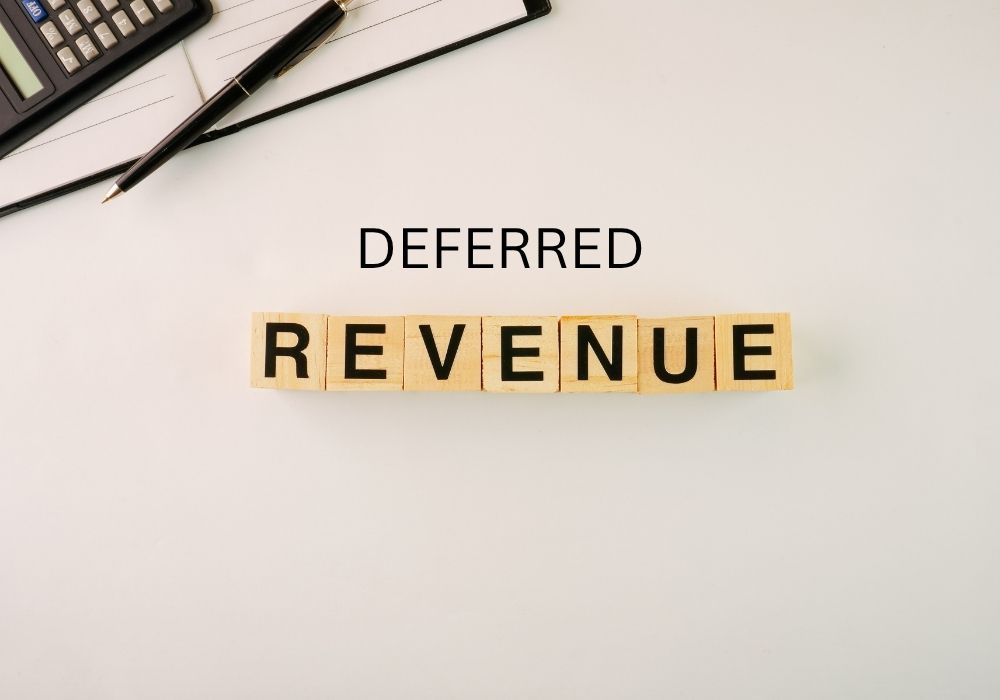Imagine you’re in a high school, and your economics teacher is about to explain something called differed revenue in an engaging and fun way.
You will certainly get what deferred revenue is, and if it’s boring, you’ll probably not get it. However, it is not as boring as it sounds.
In this article, you’ll not only get what deferred revenue is but also see why it matters in the business landscape. So, without any more delay, let’s barge forward.
What’s Deferred Revenue?
Assume you mow your neighbor’s lawn every week, and they pay you $100 upfront for the next five weeks. Awesome, right? You’ve got cash in your pocket! But here’s the catch—you haven’t mowed the lawn yet.
That $100 isn’t really yours to spend on pizza or that new game just yet. In accounting, that money is called deferred revenue. It’s money a business (or you, the lawn-mowing entrepreneur) gets paid for goods or services it hasn’t delivered yet.
Deferred revenue is like a promise. The business says, “Thanks for the cash, but I owe you something in return.” Until they deliver—whether it’s a product, a service, or even a subscription—the money sits on their books as a liability.
Yep, a liability! It’s not “free money” because the business has an obligation to fulfill.
Why Does It Matter?
Okay, so why should a 12th-grader care about deferred revenue? Well, it’s a key part of how businesses keep their books honest.
Accounting is like telling a story about a company’s financial health, and deferred revenue makes sure that the story doesn’t get ahead of itself. If a company counts money as “earned” before delivering the goods, it’s like you claiming you aced a test before even taking it. Not cool, right?
Deferred revenue shows up on a company’s balance sheet as a liability because it’s money they owe in the form of future work.
Once they deliver the product or service, they can move that money to the income statement as earned revenue. This keeps everything fair and square, so investors, banks, and even the government know the company isn’t fudging the numbers.
Examples
Let’s break it down with some examples that’ll hit close to home.
Example 1: Your Favorite Streaming Service
You love binge-watching shows on a streaming platform, right? Let’s say you pay $15 a month for a subscription. When you pay for a year upfront ($180), the company gets that cash right away. But they can’t say they’ve “earned” it all on day one.
Why? Because they’re promising you 12 months of movies and shows. Each month, as they provide access, they recognize $15 as earned revenue. The rest? Deferred revenue is sitting on their balance sheet like a to-do list.
Example 2: The Gym Membership
Ever notice how gyms love those annual membership deals? You pay $600 for a year of sweat and treadmills.
The gym gets your money upfront, but they can’t count it all as revenue until they’ve provided a year’s worth of access.
Each month, they “earn” about $50 of that payment. If they shut down halfway through the year they’d owe you a refund for the unearned portion—that’s the deferred revenue they didn’t deliver on.
How It Works?
Alright, let’s get a bit technical, but I promise to keep it light. When a company receives money for deferred revenue, here’s what happens in their books:
- Cash Increases: The company gets the payment, so its cash account goes up.
- Liability Created: That money goes into a deferred revenue account (a liability) because they owe the customer something.
- Revenue Recognized Over Time: As the company delivers the product or service, it moves money from the deferred revenue account to the revenue account.
Here’s a super simple journal entry for our lawn-mowing example:
- You get $100 upfront for five weeks.
- Debit: Cash $100 (you got the money).
- Credit: Deferred Revenue $100 (you owe five weeks of mowing).
- Each week, after mowing, you’d record:
- Debit: Deferred Revenue $20 (one week done).
- Credit: Revenue $20 (you earned it!).
This process is called revenue recognition, and it’s how businesses stay honest about what they’ve actually earned.
Why Businesses Love Deferred Revenue?
Now, you might be thinking, “Why do companies like getting money they can’t fully use yet?” Great question! Deferred revenue is like a vote of confidence from customers.
It shows people trust the business enough to pay upfront. Plus, that cash can help the company operate—pay employees, buy equipment, or even invest in growth.
Just don’t spend it all at once, or you’ll end up dreaming of concert tickets I couldn’t afford!
Companies like software giants (think Microsoft or Adobe) or subscription services (like Netflix or Spotify) thrive on deferred revenue.
It gives them a steady cash flow, even if they’re earning the revenue bit by bit. For example, when Adobe switched to a subscription model for Photoshop, its deferred revenue skyrocketed because people paid monthly or yearly for access. Smart, right?
The Flip Side
Deferred revenue isn’t all sunshine and rainbows. If a company overpromises and underdelivers—like my software course disaster—they could end up with angry customers and a pile of refunds to process.
Plus, managing deferred revenue can be tricky. Imagine keeping track of thousands of subscriptions, each with different start dates and terms. It’s like juggling while riding a unicycle!
Another risk? If a company goes bankrupt, that deferred revenue becomes a headache.
Customers who paid upfront might not get what they were promised, and creditors will be knocking. It’s why accounting rules are so strict about keeping deferred revenue separate from earned revenue.
Wrapping It Up
So, what have we learned? Deferred revenue is money a business gets for goods or services it hasn’t delivered yet.
It’s recorded as a liability until the company fulfills its promise, at which point it becomes earned revenue.
Whether it’s your streaming subscription, a gym membership, or even my ill-fated software course, deferred revenue is everywhere in the business world. It’s a way to keep things fair, ensure trust, and help businesses plan for the future.
Next time you pay for something upfront—like a year of your favorite app—think about how that company’s accountants are logging it as deferred revenue.
And if you ever start your own business don’t spend that upfront cash until you’ve earned it. Otherwise, you might end up chasing refunds and learning accounting the hard way!

